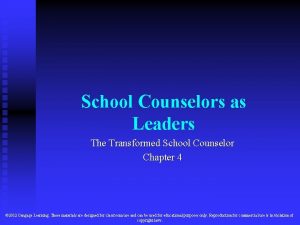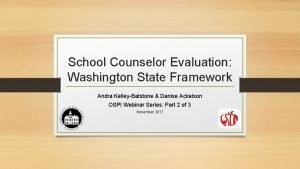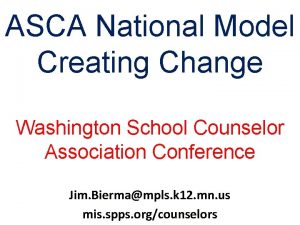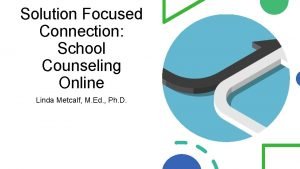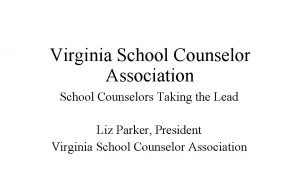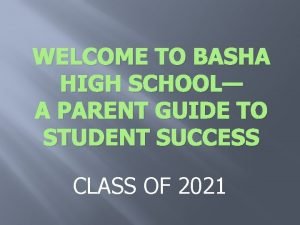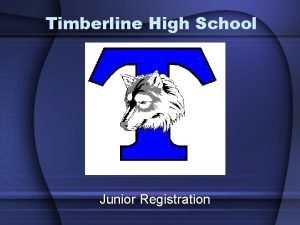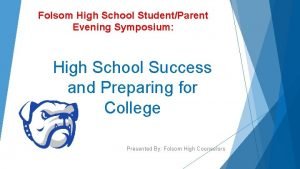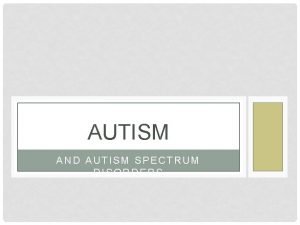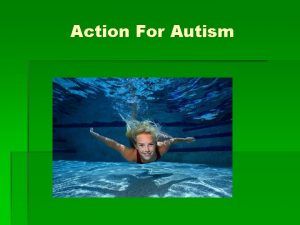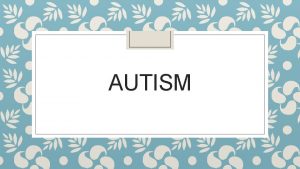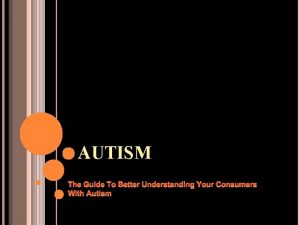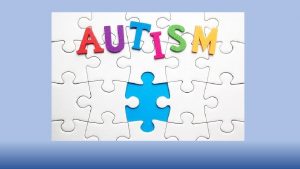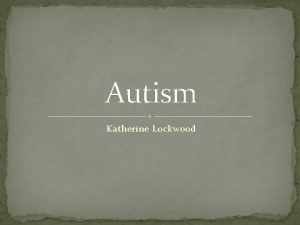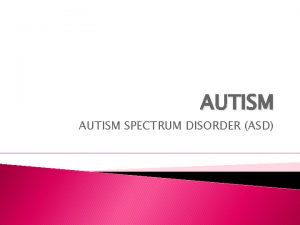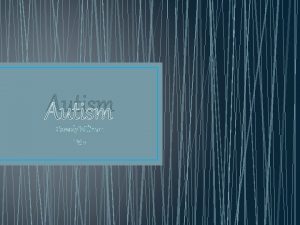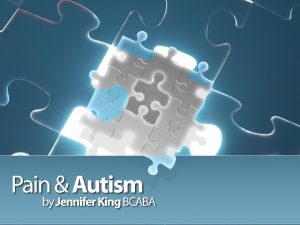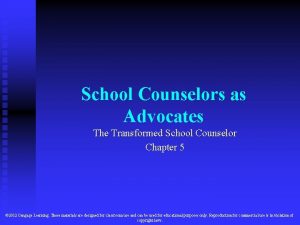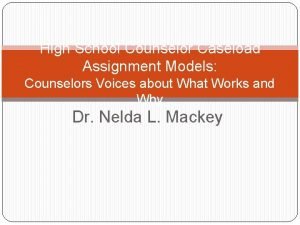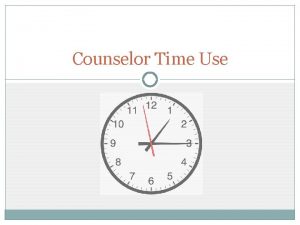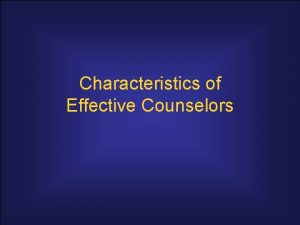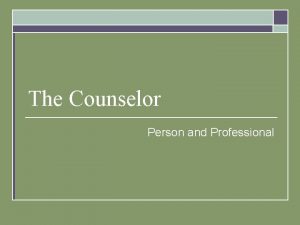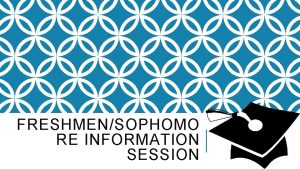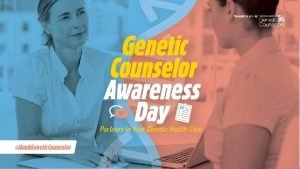Autism and the School Counselor How School Counselors
























- Slides: 24

Autism and the School Counselor: How School Counselors can continually learn about autism while advocating for autistic students in high school.

What is Autism? • Autism Spectrum Disorder (ASD) consists of several developmental disabilities that is marked by impairments in social interaction with others. • Autism is also marked by impairments in verbal and non verbal communication. • Another key trait of Autism is a very high restriction against certain interests/ repetitive behaviors.

The Etiology of Autism • According to the Autism society, there is not one single cause for Autism. The most widely accepted reasoning is that Autism is caused by abnormalities in the brain function or structure. • Brain scans have show that children with autism have differences in the shape and structure of their brains.

How Prevalent is Autism in the United States? • The Center for Disease Control and Prevention reports that 1 out of every 88 8 year olds in the United States has Autism Spectrum Disorder. • Boys are more likely to have ASD than girls. In a recent study, of 8 year olds, 1 in every 54 boys have ASD in comparison with 1 in every 252 girls. • ASD is mainly found in non-Hispanic white children than in minority children.

How prevalent is Autism in high schools? • During the 2009 -2010 school year, the U. S. Department of Education reported that 378, 000 students were receiving special education services in public schools.

How prevalent is Autism in high schools? (cont. )

Characteristics of Autism • According to the CDC, parents have reported that their autistic children begin childhood with social skills and interaction but ultimately notice the regression of social skills and what seems to be “ a loss of personality. ” • Most ASD characteristics are seen in social settings, such as Elementary School. • For students with ASD, adjustment to school and rules is challenging. • Students with ASD display symptoms such as anxiety, withdraw, depression, inattention, hyperactivity, oppositional and aggressive.

Characteristics of Autism (cont. ) • In a study with 8 year old ASD students, 50% of them displayed issues with perfectionism and emotional regulation. • 50% of 8 year old students with ASD were considered to be academically underachieving in comparison with the rest of their classmates. • Another recent study conducted with parents of Autistic children reported that their children struggled with communication, social skills, adaptability, daily living skills, withdrawal, attention problems and somatization.

Characteristics of Autism (cont. ) • As ASD students mature and progress through school, issues with organization. • Due to the issues with organization and anxiety, many ASD students struggle with test taking. • Also, many teachers struggle in building relationships with students because of social regression and limits on comprehension.

Education Implications • Learning • Due to struggles with comprehension, many regular classroom teachers struggle with keeping ASD students engaged. • Teachers also struggle with how much ASD students are comprehending during the lesson. • ASD students learning styles are also different in that they perceive language as literal, which means teachers must not use metaphors or other language that could distract students.

Education Implications • Behavior • Students with ASD often exhibit repetitive and stereotyped patterns of behavior towards certain interests and activities. • Students with ASD also display a need for the presence of restriction. For example, if an ASD student is used to doing math and then reading, and you flip those two activities, the lack of restriction to keeping consistency is off-putting to students with ASD.

Education Implications • Behavior (cont. ) • Another key behavioral issue for students with ASD is anxiety. • ASD causes anxiety to be triggered, even in moment or events that are meant to be enjoyable, ASD can cause students to be extremely anxious. • When anxiety is triggered in ASD students, they are often overwhelmed to the point that they cannot verbally express how they feel. • Some of the symptoms that are observed when a student with ASD has anxiety are: meltdowns, withdrawal, verbally aggressiv behavior and obsessive behavior.

Education Implications • Social • Difficulties with social interaction is said to be the defining characteristic of ASD in students. • Students with ASD struggle with initiating, reciprocating and maintaining relationships. • Studies have demonstrated a very low level of inclusion of ASD students with their peers.

Education Implications • Social (Cont. ) • As students with ASD move towards middle school, the degree of social engagement decreases. • Studies have demonstrated that students with ASD have a decrease in tolerance of differences and fear rejection. • Also, especially for boys, the presence of unstructured games and competitive games can cause issues for children with ASD due to the lack of motor skills or inability to handle several complex rules.

Education Implication • Medical • The main medical treatment for ASD is medication that helps with symptoms such as: inattentiveness, seizures, anxiety and aggressiveness.

• So How Can School Counselors advocate and help implement interventions for ASD students?

School Counselors can… • Equip general classroom teachers with information on ASD. • Counselors can collaborate with the parents and the teacher on consistent behaviors that a student displays. • Counselors can encourage teachers in methods and learning styles that are beneficial for ASD students. • Counselors can encourage the teacher to communicate with a students parents on road blocks i. e. things for the teacher to avoid doing and also ways the teacher can encourage certain positive behaviors.

Accommodations • School counselors can collaborate with autism specialists and schoolbased psychologists to enhance access to accommodations. • School counselors can help teachers to understand the impact of ASD and to accommodate these students by reframing the students’ social behaviors. • Teachers can then in turn can begin to build a positive relationship and begin to encourage the student to seem them as someone they can trust, especially if the student is struggling academically or socially.

Modifications • Due to students with ASD needing support during and after school, there is a need for teachers and counselors to find ways to support ASD students during non-instructional time. • For example, school counselors could model in play groups or classroom guidance how to include all students and create a culture of understanding about ASD. • Teachers can also modify their classroom routines to better fit the ASD student whether that be creating a consistent lesson plan or attempting to adhere to a consistent schedule.

Instructional/Behavioral Strategies • Consistent interventions are crucial for ASD students success in and outside of the classroom. • One study has demonstrated that the use of Social Stories is a helpful intervention for ASD students. • Social Stories are designed to help ASD students share accurate social information in a manner that is reassuring and is wellreceived by others.

Instructional/Behavioral Strategies • Other successful interventions include: • SCORE Skills Strategy intervention, that is a 10 -weel afterschool program that focus on five main social skills: exercising self-control, recommending or encouraging change politely, offering encouragement or help, sharing ideas and complimenting others). • Another successful intervention is the use of of verbal and visual teaching aids, along with practice and repetition.

Advocating for ASD students for College • A part of a school counselor’s role is to advocate for ALL students to go to college. • Recent research has indicated that the number of students with ASD who attend college is very low. • School counselors can help to aid students with ASD in encouragement and activities that help students with selfadvocating, self-determination and helping them to understand strengths and weaknesses.

Advocating for ASD students for College • School counselors can also collaborate with parents about campus size, campus disability access and awareness, what kind of educational accommodations are offered and general campus resources. • There is also a piece to identifying transitional strategies, how to disclose their disability and how to identify supports.

References • Auger, R. W. , Ph. D. (2013). AUTISM SPECTRUM DISORDERS: A RESEARCH REVIEW FOR SCHOOL COUNSELORS. Professional School Counseling, 16(4), 256 -268. Retrieved from http: //libproxy. lib. unc. edu/login? url=http: //search. proquest. com/docview/1444144509? acco untid=14244 • Krell, Megan, Ph. D. , N. C. C. , & Pérusse, Rachelle, Ph. D, NCC, NCSC. (2012). PROVIDING COLLEGE READINESS COUNSELING FOR STUDENTS WITH AUTISM SPECTRUM DISORDERS: A DELPHI STUDY TO GUIDE SCHOOL COUNSELORS. Professional School Counseling, 16(1), 29 -39. Retrieved from http: //libproxy. lib. unc. edu/login? url=http: //search. proquest. com/docview/1312675893? acco untid=14244 • NICHY http: //www. edweek. org/ew/dc/2015/by-the-numbers-students-with-disabilities. html#autism
 School counselor and principal relationship
School counselor and principal relationship The transformed school counselor
The transformed school counselor School counselor certification washington state
School counselor certification washington state Washington school counselor association
Washington school counselor association School counselor roles
School counselor roles Linda metcalf solution focused
Linda metcalf solution focused Virginia school counselor association
Virginia school counselor association School counselor corps grant
School counselor corps grant Missouri comprehensive guidance and counseling program
Missouri comprehensive guidance and counseling program Counselor roles and responsibilities
Counselor roles and responsibilities Interlake high school counselors
Interlake high school counselors Montwood high school football
Montwood high school football Basha high school electives
Basha high school electives South forsyth high school counselors
South forsyth high school counselors Sammamish high school course catalog
Sammamish high school course catalog Lambert high school counseling
Lambert high school counseling Basha high school counselors
Basha high school counselors Basha counselors
Basha counselors Luthart
Luthart Atascocita high school counselors
Atascocita high school counselors Timberline high school counselors
Timberline high school counselors Newport high school counselors
Newport high school counselors Folsom point church of christ
Folsom point church of christ Naviance avon high school
Naviance avon high school Woodstock high school counselors
Woodstock high school counselors

